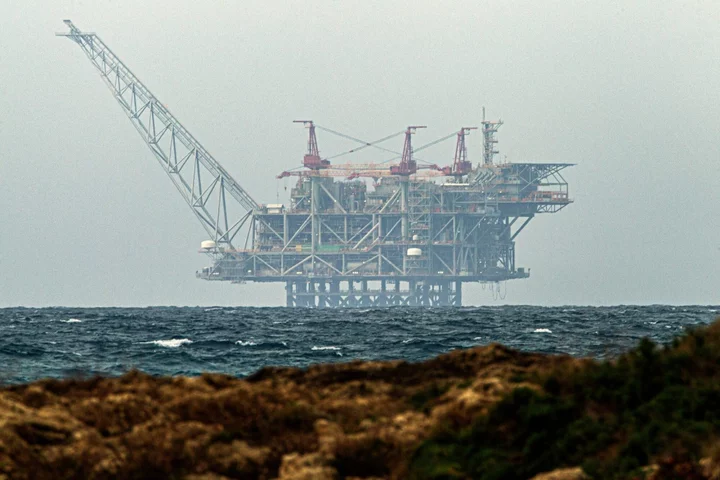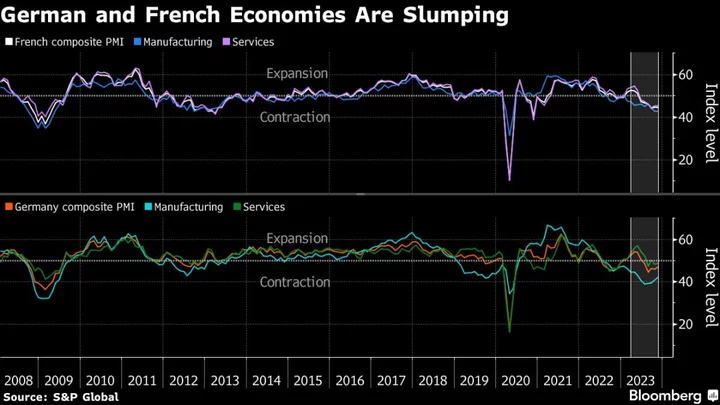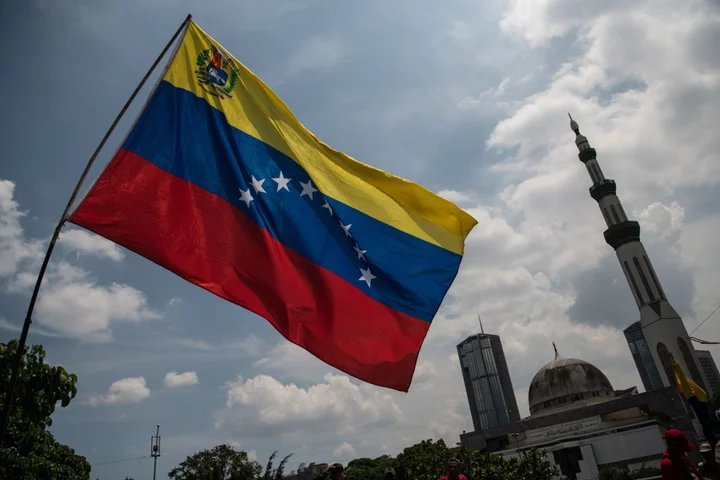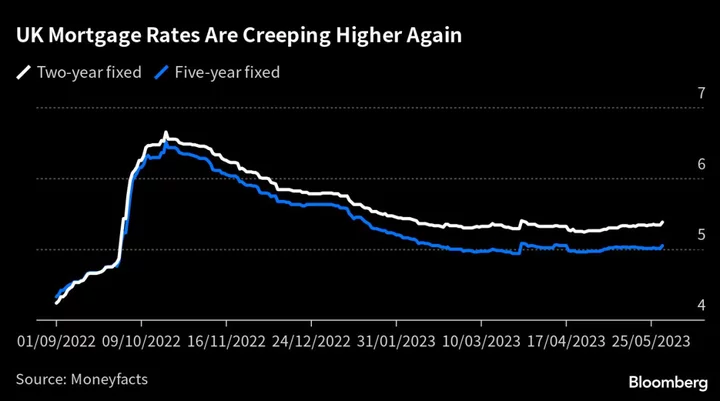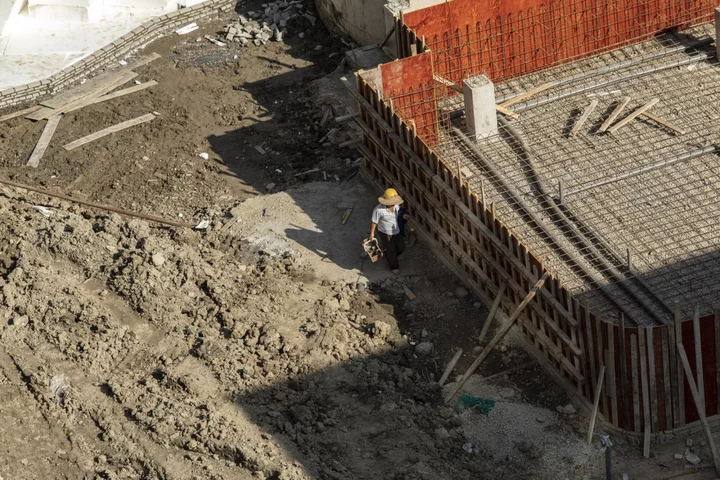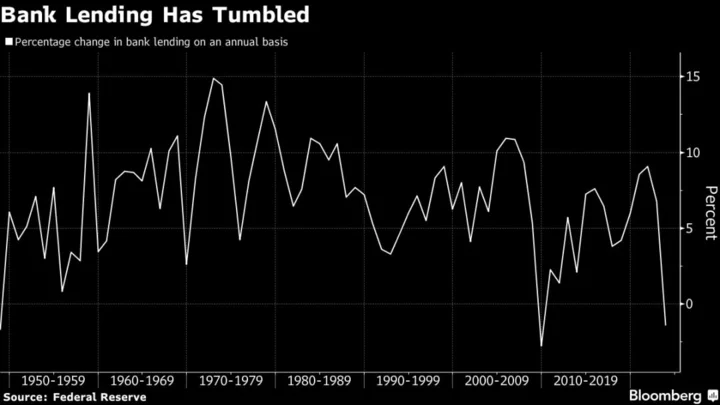Hong Kong’s currency has risen above the mid-point of its trading band against the dollar for the first time this year, as the city’s de facto central bank followed the Federal Reserve with a fresh interest rate hike.
The Hong Kong dollar decisively crossed 7.80 per dollar, the center of the pair’s allowed trading band, after the Fed raised rates to a 22-year high and left the door for further policy tightening. Within hours, the Hong Kong Monetary Authority also increased the local funding benchmark to 5.75% from 5.5%.
Following HKMA’s rate increase, the city’s biggest lender HSBC Holdings Plc said it will also raise its prime rate by 12.5 basis points to 5.875%. Local banks have been hiking lending rates this year as the monetary tightening cycle hits liquidity and increases their funding costs.
Interest rates in Hong Kong move in lockstep with those in the US, given the local currency’s peg to the greenback. Higher funding costs will help the HKMA curb bearish bets on the city’s currency and maintain its peg, although a sustained rate increase may threaten a nascent economic recovery.
“The dollar is starting to head down as the market perceives a Fed rate peak, plus Hong Kong rates are also elevated,” said Stephen Chiu, a Bloomberg Intelligence strategist. “It will help push USD/HKD lower. I expect the pair is likely to be in the 7.75-7.79 range in near term.”
The Hong Kong dollar’s strength is driven by demand for dividend payments from listed companies given that it is the earnings season, said Arthur Yuen, HKMA deputy chief executive, at a press conference Thursday. He also cited adjustments under the linked exchange system as a factor.
Hong Kong borrowing costs have seen a volatile rise since the Fed began its tightening cycle. The one-month Hong Kong Interbank Offered Rate — or Hibor — climbed to 5.21% this month, the highest since 2007. That rate is a reference for mortgage loans, so any further pressure on it may pose a risk to the city’s property market.
The Fed’s hawkish moves could lead to further Hong Kong liquidity tightening and a rise in Hibor rates — “and most importantly, push prime lending rates above its current 5.75% level,” Bloomberg Intelligence wrote in a note earlier this week.
The HKMA has intervened over the past year to prop up the local dollar. That’s caused the city’s liquidity pool to shrink. Higher cash demands for payments have also caused liquidity to tighten.
When asked Thursday about the property sector’s outlook, Yuen emphasized that the recent relaxation of mortgage rules was aimed at maintaining banking stability and not related to home prices.
(Updates with currency moves and comments.)
Author: Ka Ho Cheuk, Chester Yung and Krystal Chia



